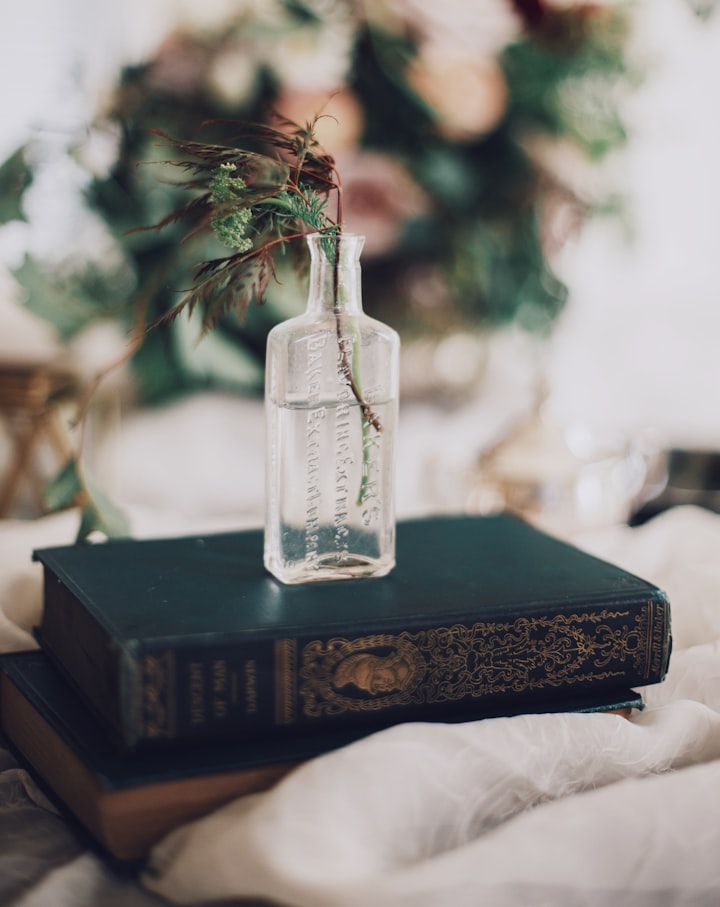Trust and Trauma
Complex trauma and how I don't know what it means to trust

As I sit here, I find myself torn to pieces. I am nearly thirty years old and as I've stated in a previous article, working on my complex trauma. Years of abuse has put me in a strange place. I have been with my partner for going on five years now, and I don't know how to trust her.
I am working on a twelve week program that confronts my internal dialogue and works on changing it. I am challenged each week to face different aspects and layers of the trauma that I've experienced. And one of those is trust. Part of that facing involved writing down all the ways we trust someone. And I came up blank. I didn't understand. I couldn't think of a single thing and kept having to refer to example worksheets in order to push my way through this particular round of therapeutic homework. Let me tell you, it hurt. I am still hurting over it.
Simple things like relying on someone to be timely, or expecting them to be safe to talk to are examples of trust. I know this only because of the examples presented to me. I don't know these things for certain. And I don't know how to unravel the way that I feel about it. It leaves me twisted up because I understand that this is the fault of my childhood. Of the screaming, the yelling, the inconsistent temperaments of the adults around me. The confusing uncertainty that came with never really knowing what you'd do wrong this time.
The other themes that I have touched base with have included safety, as well as power and control. It's all about layering these different issues and bringing it all around to how I view the world despite what I have been through. Re-working how I view my own trauma, and how I handle personal relationships along with worldly relationships. I have had to spend my whole life believing that people were the enemy. That they would happily abandon you, abuse you, leave you feeling useless without batting an eye. I became a master at ghosting others. And now I am facing it all. The way I break down. The anxiety that I feel all the time. The depression that eats away at my ability to accomplish anything. My poor self-esteem. It's all there, all out on the table.
Trust is a tough one. In order to trust, you have to feel safe. Easy enough to comprehend, harder to put into practice. Because even with the woman that I love, have loved since I was seventeen years old, I don't feel safe. If she seems a little down, I assume it's my fault. If she gets too loud, I shut down or explode to defend myself. One ugly response after another as I live my entire existence in fight, flight or freeze. Power and control are another part of this. I either submit to everything, or I exert so much control that I tease that line of being abusive myself.
I explain all of this because it's important to understand trust. How it works. It isn't just looking at someone and knowing that they won't cheat on you, or steal from you. It's also feeling as though you can talk to them about anything. It's about knowing yourself well enough that you are aware of what is good or bad for you. It's being aware that your mechanic does know what they are doing and you can rely on them to get the job done. Or understanding that a doctor has spent years perfecting their practice and in theory shouldn't kill you with a misdiagnosis. Or more than that, it's realizing when those people are frauds and being able to stand up for yourself. Trust is a bare basic in terms of human interaction. You trust your friend to keep your secrets. You trust your boss to guide you in the right direction and be upfront with you about performance. You trust your own judgement.
I don't know how to do any of that. Even writing this is difficult. I want to default to the idea that I will fail. That this is meaningless. That I am meaningless. If someone doesn't tell me what to do, then I shouldn't do anything at all. If I don't let the woman I love pick what we watch on TV, or tell me where she would rather eat, then I convince myself that I am being controlling. I believe to the depth of my core that she will judge me or get mad at me for doing something that she doesn't like. And that's not her fault. In fact, she does her very best to encourage me. Wanting me to write. Wanting me to decide. Always coming into a situation with my best interest in mind.
These things, under normal circumstances would bring about feelings of trust. They would make someone feel loved and appreciated. Instead, I feel scared. I feel as though I am waiting for the other shoe to drop. And it hurts. It's insanely painful to look at her and beg her to remind me that everything is okay. Tell me that she loves me. Reassure me that she isn't angry or upset. I see that it hurts her too. She struggles because she doesn't know how to help me understand. She remains patient, she remains kind. But she is lost. I see it and I feel so guilty that I'm not better. That I can't seem to find that sense of normal within myself.
Abuse, especially emotional and mental abuse breaks down your identity. Your sense of self. There is no real way to be sure if your judgement is correct, if that gut instinct is useful. Because in a household where you are convinced that it's really you that's the monster, that's what you eventually learn to believe in an attempt to protect yourself. As a child, those years of development are essential to creating a functioning adult who understands themselves and the world around them. I did not get that. I got violence. I got confusion. I got a divide and conquer sort of existence. And now, today, it isn't my abusers that suffer. No, it's me. I suffer the consequences of it. I want to be better, I want to heal and let go. I want to feel safe in my own skin, and yet, I doubt. I struggle each day to find my footing in what's appropriate versus what is survival instinct.
In the end, I am writing this for myself. To put my story out there. And I am writing it for other survivors. So that maybe they can read this and understand they are not alone. I get it. I am there in the trenches with you, learning that safety, trust, intimacy, self-esteem. Those things were stolen from us, and now we live with the horrors of it.
But the other side of that is extremely important. There is hope. I have been in therapy for three years. At first, it was treating the symptoms. Getting me to relax and open up. And over the last 7 weeks, as I sort through these different layers, I am identifying things I didn't before. I am recognizing them and sorting through them. A topic at a time. And I am feeling the result of it. Yes, I still hurt, and I am left wanting to sob and scream and cry because I don't understand why anyone wanted to do this to me. To mess me up this badly. But I am processing it, I am slowly healing, and you can too. You are deserving of it, and you have support, even in those moments that you feel utterly alone.






Comments
There are no comments for this story
Be the first to respond and start the conversation.